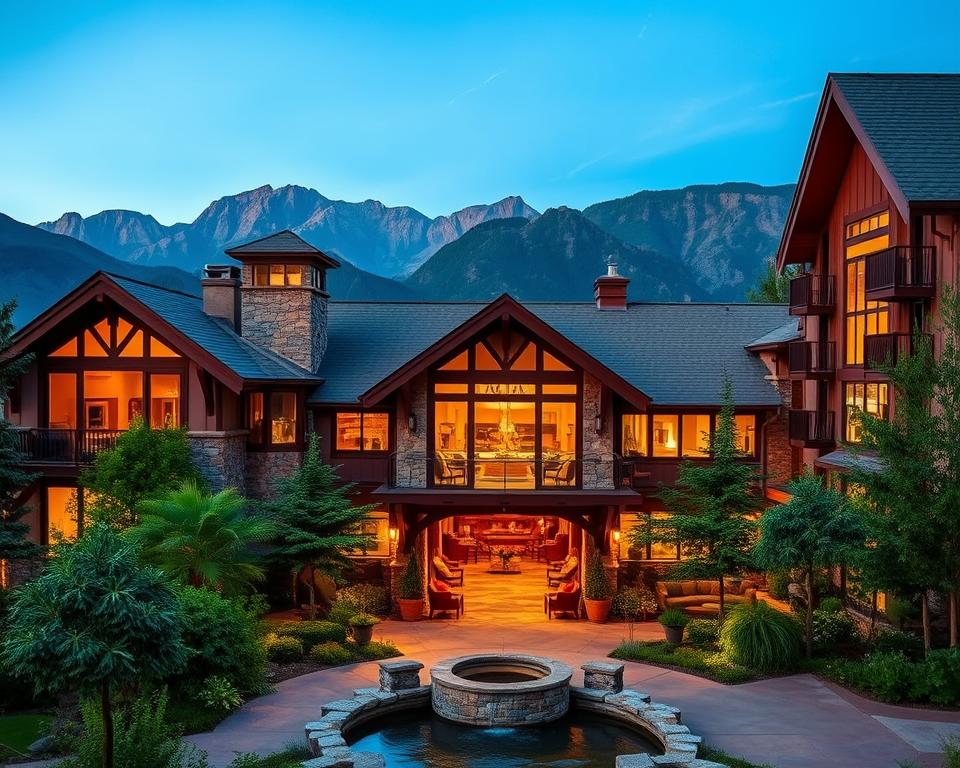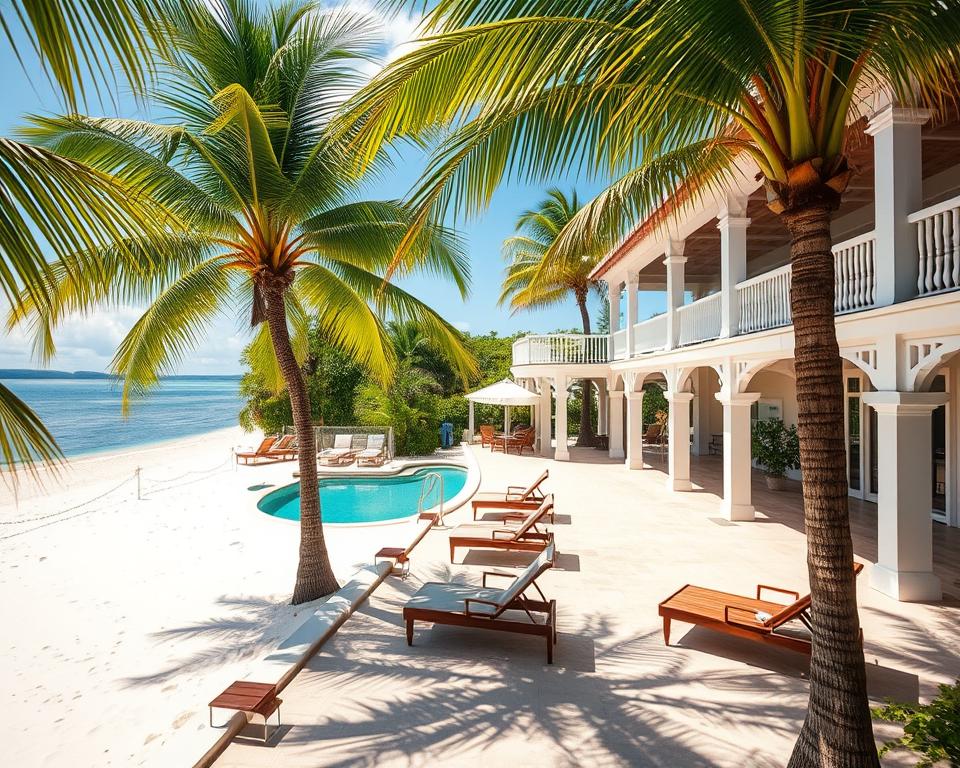
Who Owns the Small Luxury Hotels of the World?
Did you know that approximately 60% of travelers believe that the ownership structure of a hotel can significantly impact their experience? Understanding who owns small luxury hotels of the world not only sheds light on their uniqueness but also affects the type of service guests can expect. In this article, we will explore the intricate landscape of luxury hotel ownership, including everything from boutique hotel ownership to management structures. As we delve into this topic, you’ll gain valuable insights into the various stakeholders behind these exclusive properties, their operational roles, and the significance of this knowledge for travelers and investors alike.
Key Takeaways
- Ownership of small luxury hotels often involves a mix of private investors and international brands.
- Understanding luxury hotel ownership can enhance the travel experience.
- Boutique hotel ownership allows for a personalized touch that franchised hotels may lack.
- The operational structure directly influences hotel management and guest services.
- Market trends indicate shifting ownership patterns in the luxury hotel sector.
Introduction to Small Luxury Hotels of the World
Small luxury hotels are redefining the hospitality landscape, offering a more intimate experience for discerning travelers. Unlike conventional hotels, these boutique hotels deliver personalized services that cater to individual preferences. Guests can expect unique locations, often in stunning surroundings, which play a significant role in creating memorable luxury hotel experiences.
The charm of small luxury hotels lies in their attention to detail. From carefully curated decor to locally inspired cuisine, every aspect is designed to immerse guests in the local culture while providing a luxurious ambiance. These establishments often feature fewer rooms than larger hotels, allowing for more attentive service and a cozier atmosphere.
The brand behind Small Luxury Hotels of the World has cultivated a reputation for excellence since its inception. Over the years, it has grown to include a diverse range of properties, each showcasing distinct elements that appeal to luxury travelers seeking something extraordinary. By focusing on high standards and unique offerings, this brand has successfully carved a niche in a competitive market.
Understanding Luxury Hotel Ownership
Luxury hotel ownership encompasses various models that shape the experience and operation of these prestigious establishments. Understanding the different ownership categories, such as privately owned, corporately owned, and franchised properties, is essential for grasping the dynamics of this segment. Each category brings unique advantages and challenges to the forefront.
Privately owned hotels often foster a personal touch, with owners deeply invested in the customer experience and operational decisions. Corporately owned properties benefit from larger organizational resources and brand synergy, which can enhance reputation and marketing efforts. Franchised models allow independent entrepreneurs to operate under a recognized brand umbrella, leveraging established marketing channels while maintaining certain operational flexibilities.

Hotel management plays a critical role in the overall success of luxury hotels. Management companies focus on maximizing profitability through expert operational strategies and marketing prowess. These companies provide necessary oversight, ensuring quality standards and streamlined processes consistent with a luxury brand’s ethos. The intersection of ownership categories and strong hotel management creates a unique landscape in the hospitality industry that attracts both investors and travelers alike.
The Evolution of Boutique Hotel Ownership
The landscape of boutique hotel ownership has undergone significant transformation over the years, reflecting broader trends in the evolution of hotels and shifts in consumer preferences. Initially, boutique hotels were often independent establishments with unique character, appealing to travelers seeking personalized experiences. As market demands evolved, ownership structures adapted, incorporating design elements and amenities that catered to a more discerning clientele.
The rise of technology has sparked essential changes in hospitality. Digital platforms have redefined how owners manage properties, allowing for real-time data analytics, enhanced customer engagement, and streamlined booking processes. These technological advancements have democratized access to expertise, enabling small boutique hotel owners to compete effectively with larger chains.

Additionally, demographic shifts have influenced the types of boutique hotels that thrive in various markets. Younger travelers often prioritize authenticity and emotional connection over traditional luxury. This has prompted many owners to focus on creating experiences that resonate with their guests on a personal level. Successful case studies exemplify this shift, showcasing boutique hotels that have embraced local culture and sustainability to attract a loyal customer base.
The evolution of boutique hotel ownership illustrates a dynamic interplay between innovation and tradition, reflecting ongoing changes in hospitality that continue to shape the industry today.
Features of Small Luxury Hotels
Small luxury hotels offer a range of distinct features that set them apart from larger establishments. A primary hallmark is the personalized service. With fewer guests, staff members can pay closer attention to individual needs, creating an intimate atmosphere where visitors feel valued and cared for.
Exclusive locations enhance the appeal of these hotels. Nestled in picturesque settings, from scenic beaches to vibrant urban centers, they provide access to hidden gems that larger hotels often overlook. This connection to the surrounding environment contributes to the unique hotel experiences that guests cherish.
Curated experiences represent another feature of small luxury hotels. Each property often curates local activities, ensuring that guests can immerse themselves in the local culture through bespoke tours, culinary classes, or wellness retreats. Such offerings transform a typical getaway into a memorable adventure.
The high-quality luxury hotel amenities further solidify their appeal. From exquisite dining options to lavish spas, guests can indulge in a variety of first-class services that enhance their stay. These well-thought-out amenities cannot be found just anywhere and play a crucial role in the overall guest satisfaction.
Below is a table highlighting popular small luxury hotels, showcasing their unique features and amenities:
| Hotel Name | Location | Personalized Service | Curated Experiences | Luxury Amenities |
|---|---|---|---|---|
| Aman Tokyo | Tokyo, Japan | Private butlers for each guest | Guided city tours | Spa, pool, fine dining |
| Bardessono | Yountville, California | Dedicated concierge services | Wine tasting experiences | Eco-luxury spa, rooftop pool |
| Villa d’Este | Tremezzo, Italy | Personalized check-in | Culinary workshops | Lakefront dining, spa facilities |

These features of small luxury hotels not only contribute to a sense of exclusivity but also foster a deeper connection between guests and their destination, creating memories that last long after the vacation ends.
Who Owns Small Luxury Hotels of the World
The ownership landscape of Small Luxury Hotels of the World (SLH) is quite diverse, featuring a blend of independent hotels, family-owned businesses, and even larger international chains. This variety reflects the broader category of small luxury hotel group ownership, where unique experiences and personal touches resonate with guests. Understanding the intricacies of ownership inquiry becomes essential for those looking to delve into the world of luxury accommodations.
Within SLH’s membership structure, independent hotels have the opportunity to join the collection, lending them increased market visibility while maintaining their distinctive charm. The entry process for hotel franchises into the SLH network often includes a rigorous assessment to uphold the brand’s commitment to quality and service. This ensures that each property aligns with the values that guests expect from small luxury hotels.
This collaborative approach allows for a meaningful partnership between hotel owners and the SLH brand. Stakeholders like small family-owned enterprises contribute a unique narrative to the hospitality scene, showcasing the rich diversity of offerings. By examining the blend of different ownership models, travelers gain insights into what makes these hotels truly special, whether through a family-run business that prioritizes personalized service or a chain hotel franchise that leverages brand recognition while ensuring high standards.
| Ownership Type | Characteristics | Examples |
|---|---|---|
| Independent Hotels | Personalized service, unique decor, local culture | Hotel A, Boutique B |
| Family-Owned Hotels | Generational knowledge, community ties | Family Inn, Heritage House |
| Hotel Franchises | Brand consistency, scale advantages | Luxury Chain X, Global Brand Y |
Understanding who owns Small Luxury Hotels invites exploration into the stories behind each property. Guests and potential investors alike can appreciate the varying degrees of commitment and passion that characterize different ownership styles, enriching the small luxury hotel experience.
The Importance of Hotel Management Companies
Hotel management companies play a vital role in the luxury hotel sector, ensuring that properties run smoothly and efficiently. These specialized firms offer essential services that enhance guest experience while maximizing profitability for hotel owners. By leveraging their expertise in areas such as operations, marketing, and financial management, hotel management companies provide luxury hotel management solutions tailored to meet the high expectations of discerning guests.
One of the key benefits of partnering with established hotel management companies is operational efficiency. These firms implement best practices that streamline processes, from front desk operations to housekeeping. Additionally, they often use advanced technology to monitor performance, drive improvements, and enhance overall guest experience.
Furthermore, the collaboration between Small Luxury Hotels of the World (SLH) and various management companies underscores the value of these partnerships. Through access to industry expertise, personalized service delivery, and innovative marketing strategies, luxury hotels can significantly enhance guest experience while increasing occupancy rates.
Luxury Hotel Ownership Structures
Understanding the various ownership structures within the luxury hotel organization is essential for potential investors and owners. These structures can range from sole ownership to joint ventures and even publicly traded companies. Each ownership model presents unique advantages and challenges that can significantly impact financial outcomes and operational management.
Sole ownership offers complete control over the property. This structure allows owners to make unilateral decisions regarding the hotel’s branding and service offerings. On the other hand, joint ventures enable collaboration between parties, which can lead to shared resources and reduced risk. In contrast, publicly traded companies tend to have access to larger pools of capital, thus facilitating substantial investments in property management.
| Ownership Structure | Control | Capital Access | Risk Level |
|---|---|---|---|
| Sole Ownership | High | Limited | Higher |
| Joint Ventures | Shared | Moderate | Moderate |
| Publicly Traded Companies | Low | High | Lower |
Examples from noted luxury hotel brands illustrate how these ownership structures function in real-world scenarios. For instance, Marriott International operates through a mix of joint ventures and franchise agreements, allowing flexibility in property management while still maintaining brand standards. Similarly, Four Seasons Hotels and Resorts often utilizes partnerships to enhance their service offerings without compromising on luxury.
The choice of ownership structure influences not only financial implications but also strategic decisions regarding property management, brand positioning, and overall customer experience. Understanding these nuances is key for anyone looking to invest in the luxury hotel sector.
Exploring the Small Luxury Hotels Group
The Small Luxury Hotels Group, often referred to as the SLH network, stands as a distinguished collection of unique luxury establishments worldwide. Established to connect independent luxury hotels, this network emphasizes distinctive characteristics and personalized services that cater to discerning travelers. Each property within the small luxury hotels group must meet rigorous standards, ensuring guests experience unparalleled service and sophistication.
The criteria for membership involve various factors, including exceptional service quality, unique design, and a commitment to sustainability. This dedication to excellence allows the SLH network to maintain its reputation as a premier choice for luxury accommodations.
Being part of the small luxury hotels group offers numerous benefits. Hotels gain access to global marketing resources, extensive luxury hotel connections, and a platform to showcase their unique offerings. Travelers benefit from these connections, experiencing a curated selection of hotels that promise authenticity and memorable experiences.
Regional Ownership Differences
The landscape of luxury hotel ownership varies significantly between regions, particularly when comparing North America hotels and European luxury hotels. Understanding these regional differences highlights unique trends and challenges that owners and investors face in each area. Cultural factors and economic conditions play crucial roles in shaping ownership preferences and operational strategies, leading to distinct patterns of investment.
Ownership Trends in North America
North America has witnessed a considerable trend toward consolidation, with large corporations acquiring smaller boutique brands to expand their portfolios rapidly. This push toward scale allows for better resource management and competitive pricing. In 2022, approximately 60% of North America hotels were affiliated with larger management companies, reflecting a preference for established brands over independent operations.
Ownership Trends in Europe
In contrast, the European luxury hotels market demonstrates a strong inclination toward independent ownership. Approximately 40% of hotels in Europe remain independent, which fosters a unique character that appeals to travelers seeking authentic experiences. Investors tend to prioritize location and historical significance over brand affiliation, emphasizing the cultural richness of the regions they inhabit.
| Region | Ownership Type | Percentage of Independent Hotels |
|---|---|---|
| North America | Corporate Management | 40% |
| North America | Independent | 60% |
| Europe | Independent | 40% |
| Europe | Corporate Management | 60% |
The Role of Private Investors
Private investors significantly shape the landscape of luxury hotel ownership. Their growing interest stems from the potential for high returns and the allure of luxury real estate. Investment in luxury hotels offers not just financial rewards but also prestige and influence within the hospitality sector.
Understanding the ownership dynamics is crucial for anyone involved in this market. Private investors often bring unique perspectives and operational strategies that differ from larger corporate entities. This can lead to more personalized guest experiences and innovative concepts that cater to specific clientele.
Several successful properties exemplify how private ownership can thrive. For instance, boutique hotels often flourish under private investors who emphasize distinct branding and exceptional service, setting them apart in a competitive market. These investors typically focus on creating unique atmospheres and tailored experiences rather than merely maximizing occupancy rates.
Challenges accompany the benefits of private investment in luxury hotels. Investors must navigate economic fluctuations, changing consumer preferences, and market competition. Understanding these factors can position private stakeholders to make informed decisions that enhance the long-term value of their hotel investments.
Franchise vs. Independent Ownership
The hospitality landscape presents two primary ownership models: franchise ownership and independent hotel ownership. Each has its unique set of advantages and challenges that influence operational flexibility, brand recognition, and profit margins.
Franchise ownership offers the significant advantage of established branding effects. Franchisees typically benefit from a pre-existing reputation and marketing strategies of recognized brands like Marriott or Hilton. This can lead to increased customer trust and potentially higher occupancy rates. Franchise owners pay for this advantage through fees and adherence to strict brand standards.
On the other hand, independent hotel ownership allows for greater creative freedom. Owners can craft unique guest experiences that reflect their personal vision without the constraints of corporate branding. Notable independent hotels, such as the Ace Hotel in Los Angeles, often emphasize eclectic designs and unique local flavors that appeal to discerning travelers seeking authenticity.
When comparing these two models, it becomes clear the choice often hinges on individual business goals. Franchise ownership provides stability and a known brand presence, while independent hotel ownership offers flexibility and originality. Understanding these distinctions helps prospective owners make informed decisions based on market positioning and consumer preferences.
| Aspect | Franchise Ownership | Independent Hotel Ownership |
|---|---|---|
| Brand Recognition | Established and recognized brand | Unique and custom branding |
| Operational Flexibility | Limited by brand standards | Full creative control |
| Revenue Potential | Potentially higher due to recognition | Dependent on unique guest appeal |
| Fees and Royalties | Franchise fees and ongoing royalties | No fees, but full financial responsibility |
The Impact of Branding on Ownership
Branding plays a crucial role in shaping ownership dynamics within the luxury hotel market. The branding impact can be significant, as a strong brand identity attracts investment and drives financial success for properties. Brands like Ritz-Carlton and Four Seasons exemplify how effective hotel branding can foster guest loyalty, thus influencing ownership structures and management strategies.
Luxury hotel marketing strategies often focus on creating an emotional connection with guests, which enhances brand value. Owners of luxury hotels understand that a well-established brand can command higher room rates and occupancy levels. This reality leads many owners to prioritize brand partnerships and marketing campaigns to ensure long-term profitability.
The distinction between franchise and independent hotels further illustrates the varying effects of branding in ownership. Franchise hotels benefit from the established reputation of their brand, providing a sense of security for owners concerning investment returns. In contrast, independent hotels invest heavily in their individual branding to establish uniqueness in a competitive market.
| Brand Type | Ownership Dynamics | Investment Attraction |
|---|---|---|
| Franchise | Consistent branding, standardized operations | High, due to brand reputation |
| Independent | Unique branding, personalized experiences | Moderate, relies on niche marketing |
Understanding the intricate relationship between hotel branding and ownership is essential for success in the luxury hotel sector. As the market continues to evolve, these branding strategies will remain pivotal for both franchises and independent hotels alike.
Challenges in Luxury Hotel Ownership
Luxury hotel ownership presents numerous challenges, with market competition and evolving consumer trends being at the forefront. As the hospitality landscape shifts, owners must navigate a myriad of obstacles that impact their operations and profitability.
Market Competition
The luxury hotel sector is characterized by fierce market competition. New boutique hotels and luxury chains continually emerge, seeking to attract discerning travelers. This competition compels existing owners to innovate and enhance their offerings to retain market share. According to recent studies, nearly 60% of luxury hotel owners cite rising competition as a primary concern affecting their business strategies.
Changing Consumer Preferences
Consumer preferences are evolving rapidly in the hospitality industry. Modern travelers demand personalized experiences, sustainability, and authentic local engagement. The challenges of luxury ownership include adapting to these shifting tastes while also maintaining the essence of the luxury experience. Owners who embrace these evolving consumer trends stand a better chance of thriving. Strategies such as integrating technology to enhance guest comfort and offering bespoke experiences are becoming essential to attract the modern traveler.
| Challenge | Impact | Potential Strategies |
|---|---|---|
| Market Competition | Increased pressure on pricing and service models | Enhance guest experience and innovation |
| Changing Consumer Preferences | Need for personalized and sustainable offerings | Adopt technology and design unique experiences |
The Future of Luxury Hotel Ownership
The landscape of luxury hotel ownership is poised for transformation as future trends emerge. The evolution of the luxury hotel sector reflects changing consumer desires and advancing technology. Travel preferences continue shifting towards experiential offerings, prompting owners to adapt their models to meet these new expectations.
Ownership forecasts indicate an uptick in hybrid models, combining traditional hotel ownership with innovative leasing strategies. This evolution paves the way for flexible arrangements that cater to modern travelers who seek personalization and unique experiences. Owners may find it beneficial to integrate local culture and sustainable practices into their offerings, thus enhancing the guest experience while boosting occupancy rates.
Technology integration stands as a crucial component in the future of luxury hotel ownership. Smart systems, mobile applications, and automated services will likely become standard fixtures, enhancing operational efficiency and guest satisfaction. As hospitality brands adapt, ownership structures may evolve as well, leading to new partnerships and investment strategies that embrace these advancements.
Engaging insights from industry experts highlight the necessity for owners to monitor these shifts closely. By staying informed about market dynamics and customer preferences, luxury hotel owners can position themselves to thrive in this rapidly changing environment. The luxury hotel evolution will inevitably require a proactive approach to ensure sustained success and growth in a competitive market.
Case Studies of Renowned Small Luxury Hotels
Exploring case studies of renowned hotels provides valuable insights into successful ownership practices within the luxury hospitality sector. High-profile establishments like The Connaught in London exemplify how committed ownership and effective management can elevate a brand’s prestige. Known for its impeccable service and grand design, The Connaught has maintained a loyal clientele, showcasing the importance of nurturing customer relationships.
Another notable example is Hotel Le Meurice in Paris. The ownership of this exquisite property emphasizes a blend of heritage and modern luxury. Its unique approach combines classic French elegance with contemporary comfort, demonstrating that successful ownership requires adaptation to changing market trends.
On the other hand, the case of Hotel Baur Au Lac in Zurich highlights challenges faced by luxury hotels. Despite its rich history and stunning location, management had to navigate financial difficulties while striving to uphold its reputation. This case exemplifies how ownership can significantly impact operational strategies and long-term viability.
Understanding these diverse case studies sheds light on what successful ownership looks like in the context of the luxury hotel industry. Each renowned hotel carries its unique narrative, illustrating different paths to achieving excellence.
| Hotel Name | Location | Ownership Style | Notable Achievements |
|---|---|---|---|
| The Connaught | London, UK | Independent | Renowned for exceptional service and elegance |
| Hotel Le Meurice | Paris, France | Luxury Collection | Blend of modern and classic French hospitality |
| Hotel Baur Au Lac | Zurich, Switzerland | Family Ownership | Rich history with successfully navigating financial challenges |
Conclusion
In summarizing the journey through the landscape of Small Luxury Hotels of the World, it becomes clear that understanding the dynamics of ownership is crucial. This ownership recap highlights how varied stakeholders from private investors to hotel management companies influence the design, service, and overall guest experience in luxury hospitality. With the right insights, travelers can better appreciate the uniqueness each hotel offers.
The luxury hotel industry is evolving, and the implications of ownership resonate deeply within the market. As we reflect on the luxury hotel insights shared throughout this article, it is important for travelers to recognize how ownership shapes their experience. A hotel’s identity is intimately linked to its owners and operators, influencing everything from the ambiance to the amenities provided.
In closing, the final thoughts on hotel ownership reveal a rapidly changing environment where trends like boutique hotels and private investments are shaping the future landscape. Understanding this evolution not only enriches the travel experience but also elevates one’s awareness of what goes into crafting memorable stays. Ultimately, luxury hotel ownership remains a key factor in shaping the hospitality industry’s future, creating compelling destinations for discerning travelers.
FAQ
Who owns Small Luxury Hotels of the World?
Small Luxury Hotels of the World (SLH) is a collection of independently owned hotels. The ownership is diverse, ranging from small family-owned businesses to larger international hotel chains. Each hotel maintains its unique character while benefiting from SLH’s marketing and operational support.
What is the ownership structure of luxury hotels?
Luxury hotel ownership can take several forms, including privately owned, corporately owned, and franchised properties. Each model comes with varying degrees of operational control, investment required, and brand association, influencing how these hotels are managed.
How does boutique hotel ownership differ from traditional ownership?
Boutique hotel ownership often involves smaller, unique properties that focus on personalized guest experiences. These hotels typically operate independently and prioritize individual branding, which contrasts with larger luxury hotel chains focused on standardized experiences.
What role do hotel management companies play in luxury hotel ownership?
Hotel management companies enhance operational efficiency and guest experience for luxury hotels. They provide expertise in areas such as marketing, staffing, and service quality, which can significantly impact a hotel’s profitability and operational success.
What are the benefits of becoming a member of Small Luxury Hotels of the World?
Membership in SLH provides independent hotels with global exposure, marketing support, and access to a network of luxury travelers. Hotels benefit from the credibility associated with the SLH brand and gain insights into industry trends and standards.
How do luxury hotels address market competition?
To stay competitive, luxury hotels must adapt to evolving consumer preferences, invest in personalized services, and enhance their offerings. Collaboration with skilled management companies can also help in identifying market trends and improving operations.
What are the challenges faced by luxury hotel owners?
Common challenges include navigating market competition, adapting to changing consumer preferences, and managing operational costs. Successful luxury hotel owners develop strategies to address these issues, often leveraging management expertise and strong branding.
How does branding influence luxury hotel ownership?
Strong branding can attract investments and enhance guest loyalty, providing a competitive advantage. Luxury hotels with well-established brands often enjoy increased visibility and trust, leading to higher occupancy rates and profitability.
Are there different ownership trends in various regions for luxury hotels?
Yes, ownership trends can vary significantly across regions like North America and Europe. Factors such as cultural perceptions, economic conditions, and tourism demand influence how luxury hotels are owned and managed in different areas.
What is the future outlook for luxury hotel ownership?
The future of luxury hotel ownership may see an increase in experiential travel and technology integration. As consumer preferences evolve, owners will need to adapt their operations and strategies to meet new expectations in the hospitality industry.








